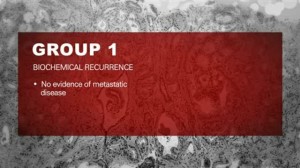NEW YORK (Reuters Health) – Among men who’ve had a negative prostate biopsy, the velocity of increasing prostate specific antigen (PSA) levels is not helpful in deciding whether a repeat biopsy is warranted, an international study shows.
As Dr. Andrew J. Vickers at Memorial Sloan Kettering Cancer Center, New York, and colleagues point out in the Journal of Urology for September, PSA velocity has been shown to be strongly associated with prostate cancer risk on biopsy in several studies, although the evidence isn’t unequivocal.
The researchers previously advocated PSA velocity to determine the need for a repeat biopsy, and in the current study they report their findings in this regard from an analysis of data from two large population-based cohorts.
The cohorts included some 4800 men who had at least one negative prostate biopsy. The investigators focused on about 1800 men with PSA less than 20 ng/mL who had up to five repeat biopsies. “Of the 2,579 biopsies, 363 (14%) were positive for prostate cancer, of which 44 (1.7%) were high grade,” the authors report.
The median PSA velocity at rebiopsy was only slightly higher in men with positive biopsies than in those with negative biopsies, the team found. Specifically, it was 0.33 vs. 0.25 ng/mL per year in one cohort and 0.32 vs. 0.23 ng/mL per year in the other.
The PSA velocity was statistically associated with cancer risk, but its predictive accuracy low, Dr. Vickers and colleagues report.
“Thus,” they conclude, “there is little justification for formal calculation of PSA velocity, use of PSA velocity cutoffs or inclusion of PSA velocity in statistical models to determine which men with prior negative prostate biopsy should be referred for repeat biopsy.”
Reference:
Prostate Specific Antigen Velocity Does Not Aid Prostate Cancer Detection in Men With Prior Negative Biopsy
J Urol 2010;184:907-912.




